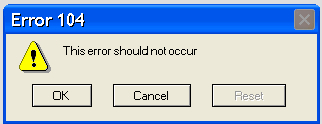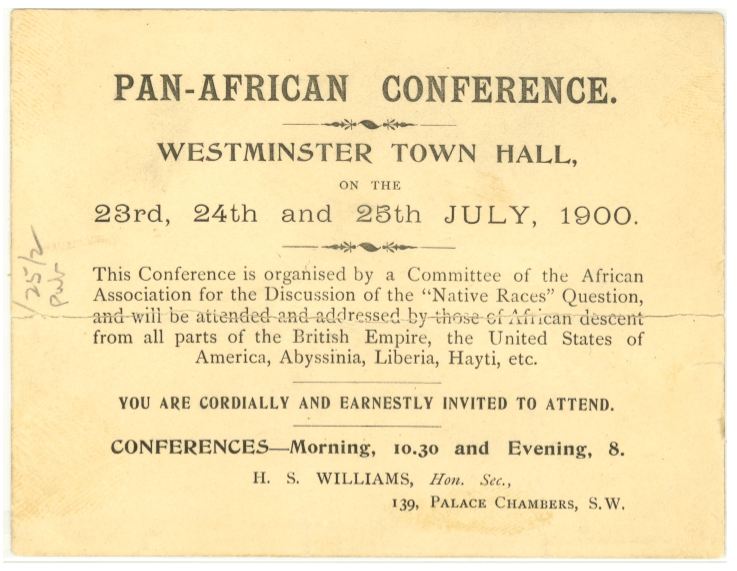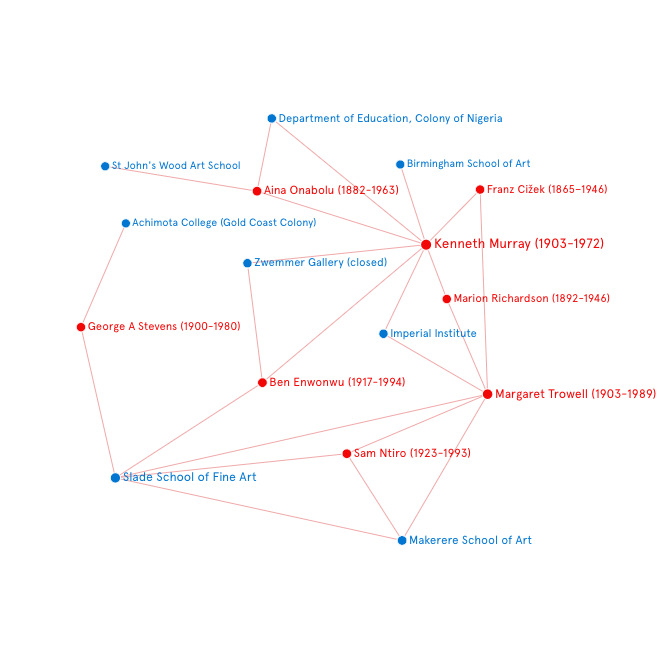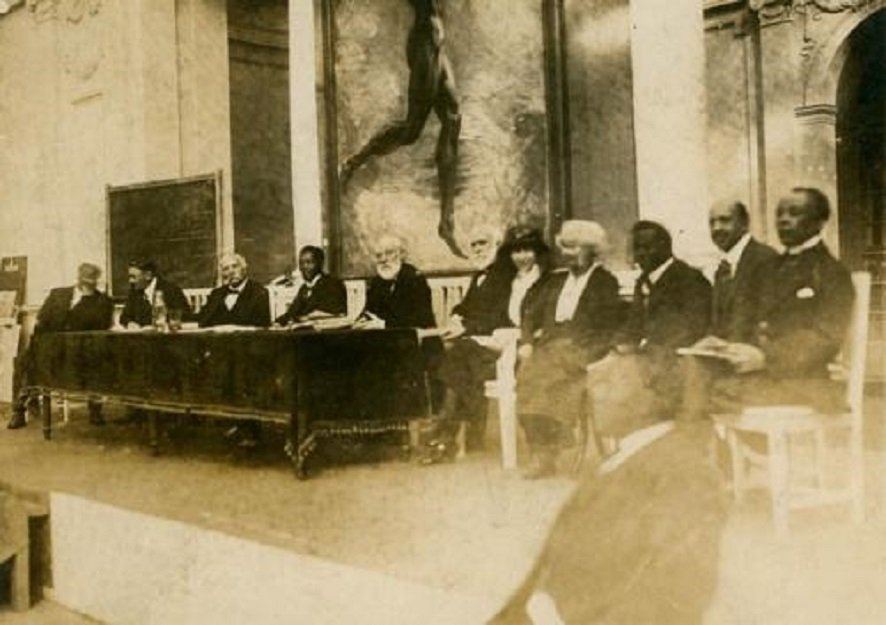
Several of you have contacted me over the weekend to tell me that you have been unable to post to this blog.
Early this morning, I contacted Leo, the site administrator, and he is working to resolve the problem.
The submission deadline is therefore extended until the problem has been solved.
With thanks for your patience and understanding,
Emma


 I understand this photograph to have been taken at the First Pan-African Congress in 1900. I am
I understand this photograph to have been taken at the First Pan-African Congress in 1900. I am 